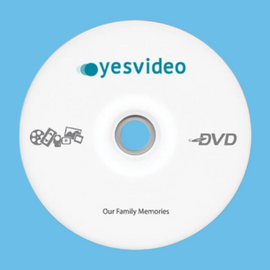
In recent years, TikTok has become one of the most popular social media platforms. With millions of users sharing short videos and engaging with content on a daily basis, there are also concerns about data collection and privacy. Legislatures from around the world want to know who ultimately controls the data on TikTok.
What Data Does TikTok Collect?
Like many social media apps, TikTok collects a significant amount of data from users. This includes information about your device, your location, your usage patterns, and more. Specifically, some of the data that TikTok collects from users includes:
- Device information: TikTok collects information about the device you are using to access the app, including its model, operating system, and unique identifiers.
- Usage data: TikTok collects information about how you use the app, including which videos you watch, how long you watch them for, and which creators you engage with.
- Location data: If you grant TikTok permission, the app can also collect information about your location, including your city and country.
- User-generated content: Of course, TikTok also collects the videos and content that you upload to the app, as well as any comments or interactions you have with other users.

How Does TikTok Collect Personal Data?
TikTok collects personal data from users in a variety of ways. Some of the methods used include:
- In-app tracking: TikTok uses tracking technologies to monitor user behavior within the app, such as which videos they watch, how long they watch them for, and which creators they engage with.
- Device permissions: When you install the TikTok app, it may ask you for permission to access certain features or data on your device, such as your camera, microphone, or location. If you grant these permissions, TikTok can collect additional data about your usage patterns.
- Third-party data sources: TikTok may also collect data from third-party sources, such as ad networks or data brokers.

What Does TikTok Do With My Data?
TikTok uses the data it collects from users to personalize the app experience and serve targeted ads. Specifically, TikTok uses data to:
- Recommend content: TikTok uses algorithms to recommend content and influence user behavior.
- Serve ads: TikTok uses data to serve targeted ads to users, based on their demographic information and past behavior.
- Monitor user behavior: TikTok may use data to monitor user behavior within the app, such as which videos they watch or which creators they engage with.

What Are the Risks Associated with the TikTok App?
While TikTok can be a fun and engaging platform, there are also risks associated with using the app. Some of these risks include:
- Data breaches: TikTok has experienced several high-profile data breaches in recent years, which have exposed user data to hackers.
- Privacy concerns: TikTok's data collection practices have come under scrutiny, with some critics arguing that the app collects more data than is necessary or appropriate.
- Inappropriate content: As with any social media app, TikTok may contain inappropriate or harmful content that can be damaging to users, particularly young children.
- Loss of original content: Originally created videos can be lost if TikTok changes it's user permissions, or the application is banned and no longer available.

The Personal Risks of Using TikTok
There are several risks associated with using TikTok, including:
- Privacy concerns: As mentioned earlier, TikTok collects a significant amount of user data, including personal information, location data, and browsing history. This information can be used for targeted advertising or even shared with third-party advertisers. Additionally, there international concerns about TikTok's ties to the Chinese government, and the possibility of the data being used for surveillance purposes.
- Cyberbullying: As with any social media platform, there is the risk of cyberbullying on TikTok. Users can leave hurtful comments on videos, and some users have even been targeted for harassment and doxxing.
- Inappropriate content: While TikTok has rules against nudity and sexually explicit content, there is still a lot of inappropriate content on the platform. Users can easily come across videos that contain vulgar language, violence, and other types of inappropriate content.
- Addiction: Like other social media platforms, TikTok can be addictive, and users can spend hours scrolling through videos without even realizing it. This can have negative effects on mental health, sleep, and productivity.
- Influencing operations: With possible links to the Chinese government, there is significant concern about how TikTok may be used to influence user behavior. Questions still linger on how the algorithm may subtly persuade users to act in ways that our counter to their world view.

Is TikTok Data Safe?
The safety of TikTok data is a complex issue that has been the subject of much debate. While the company has implemented measures to protect user data, such as encryption and data anonymization, there are still concerns about the potential for data breaches and misuse. Additionally, TikTok has faced scrutiny over its ties to the Chinese government and the possibility of user data being used for surveillance and influencing operations. The company has promised not to share user data with the Chinese government, but this has not alleviated all concerns. In fact, TikTok was fined $5.7 million by the US Federal Trade Commission for violating child privacy laws in early 2021.

The Safest Way to Use TikTok
If you choose to use TikTok, there are several steps you can take to protect your privacy and stay safe:
- Use a strong password and enable two-factor authentication.
- Be mindful of the information you share on the platform, such as your location and personal details.
- Set your account to private to limit who can see your videos and interact with you.
- Be cautious of who you interact with on the platform and report any abusive or harassing behavior.
- Keep your app and device updated to ensure you have the latest security patches.


